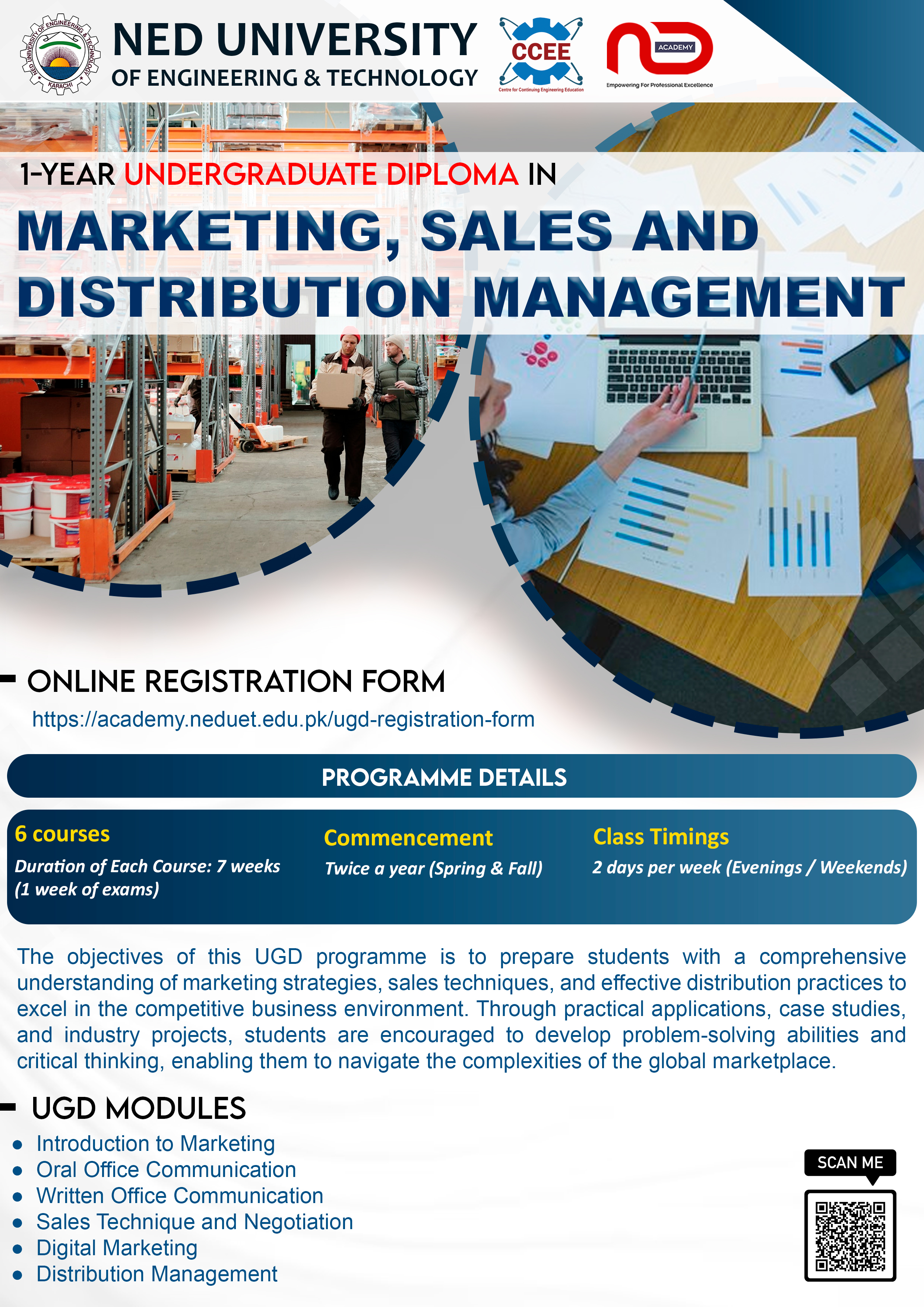DETAILED COURSE OUTLINE
🔷 Introduction to Marketing
Definition and importance of marketing, Evolution of marketing concepts, Product, Price, Place, Promotion, Examples and case studies, Maslow's Hierarchy of Needs, Decision-making process, Importance and methods, Data collection and analysis, PESTLE analysis, SWOT analysis, Porter's Five Forces, Identifying and analyzing competitors, Developing target market profiles, Positioning strategies, Building and managing brands, Brand equity, Social media marketing, Search engine optimization (SEO), Website design and user experience, Online advertising strategies, The role of IMC in marketing, Creating a cohesive marketing message, Traditional vs. digital advertising, Promotional strategies
🔷 Oral Office Communication
Types of communication: intrapersonal, interpersonal, small group, public, and mass communication, communication process, barriers of communication process, role play practice in official context: company receptionist and client/ customer, head of the department and subordinate work progress, social event of the company etc., effective telephoning skills: greetings, introducing yourself and the company, clarifying purpose of the call, handling inquiries ( practice telephoning role play), group discussions, formal presentations, participating in meetings, meeting agenda and minutes practice, meeting ethics, job interview simulations, interview ethics, appropriate vocabulary and grammar guidance of all of the topics.
🔷 Written Office Communication
Importance of written communication, differences between oral and written communication, writing simple, compound and complex sentences (Practice), paragraph writing: writing topic sentence and details(practice), coherence and cohesion in writing, notes taking, principles of effective written communication (7Cs), resume and job letter, routine emails, letters and memos writing: inquiry, reply to inquiry, order, complaint, (Direct Approach) appropriate vocabulary and grammar guidance of all of the topics.
🔷 Sales Techniques and Negotiation
Definition and role of sales in business, Different types of sales roles, Customer needs analysis, Buying motives and decision-making process, Setting SMART sales goals, Developing a sales plan, Identifying potential customers, Qualifying leads for effective targeting, Establishing trust with customers, Effective communication and active listening, Crafting compelling sales presentations, Overcoming objections, Different closing strategies, Recognizing buying signals, Maximizing sales opportunities, Adding value to customer purchases, CRM systems and sales automation, Leveraging data for better decision-making, Utilizing social media for sales, Building a personal brand online, Key principles and strategies, Win-win negotiation mindset, Overcoming common objections, Strategies for successful deal closures, Bargaining strategies, Collaborative negotiation, Ethical considerations in sales, Building a reputation for integrity
🔷 Digital Marketing
Importance in the modern business landscape, Evolution of digital marketing channels, Setting objectives and goals, Understanding the target audience, Basics of website architecture, Importance of user-friendly design, Creating compelling content, Content distribution strategies, On-page and off-page optimization, Keyword research and implementation, Link building strategies, SEO analytics and monitoring, Google Ads and Bing Ads, Creating effective ad campaigns, Banner ads and retargeting, Ad design and placement strategies, Choosing the right platforms, Creating engaging social media content, Paid promotion on platforms like Facebook and Instagram, Analytics and optimization, Building and segmenting email lists, Crafting effective email campaigns, Introduction to Google Analytics, Interpreting marketing metrics, Leveraging influencers for brand promotion, Best practices and pitfalls, Automation and personalization, Case studies on AI-driven marketing
🔷 Distribution Management
Definition and components of the supply chain, Importance of distribution in the supply chain, Types of distribution channels, Channel intermediaries and their roles, Developing a distribution strategy, Aligning distribution with overall business goals, Intensive, selective, and exclusive distribution, Evaluating and selecting distribution channels, Functions and types of warehouses, Efficient warehouse layout and design, Importance of inventory control, Inventory turnover and order fulfillment strategies, Road, rail, air, and sea transportation, Choosing the right transportation mode, Outsourcing logistics functions, Benefits and challenges of using 3PL providers, Technology for efficient warehouse operations, Tracking and managing inventory with WMS, Optimizing transportation routes and schedules, Real-time tracking and visibility, Cross-border logistics and regulations, Global supply chain challenges, Identifying and mitigating distribution risks, Business continuity planning Sustainable practices in distribution, Environmental and social responsibility


